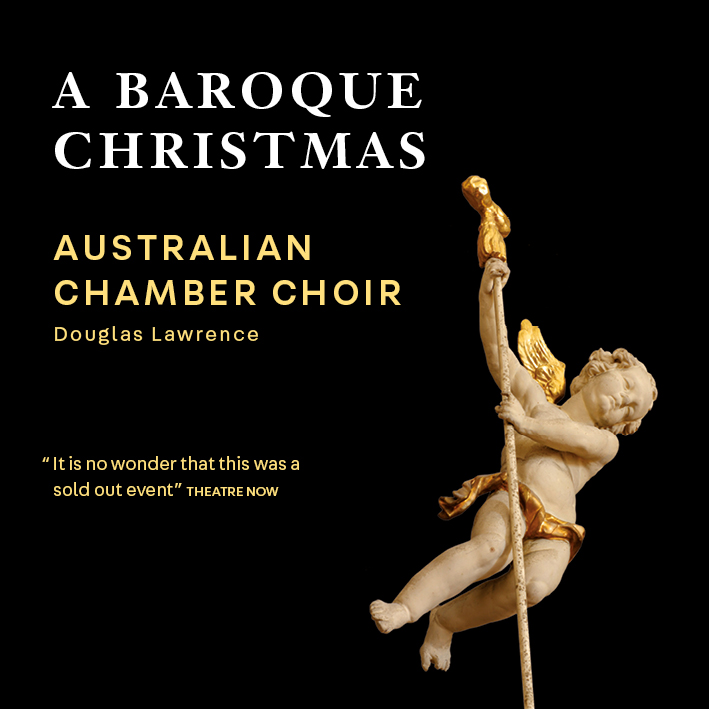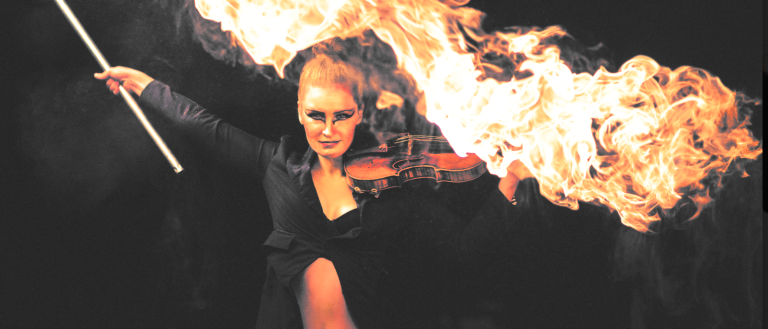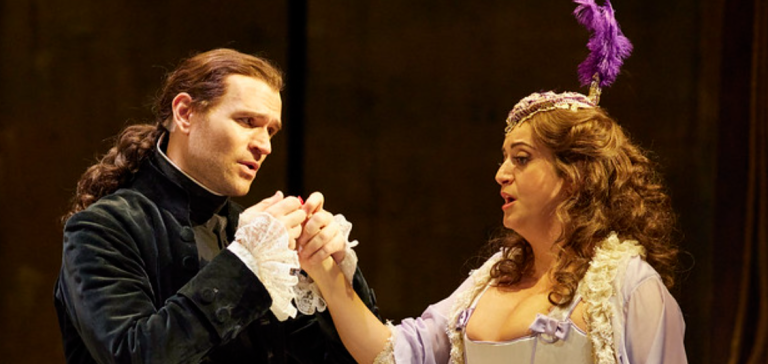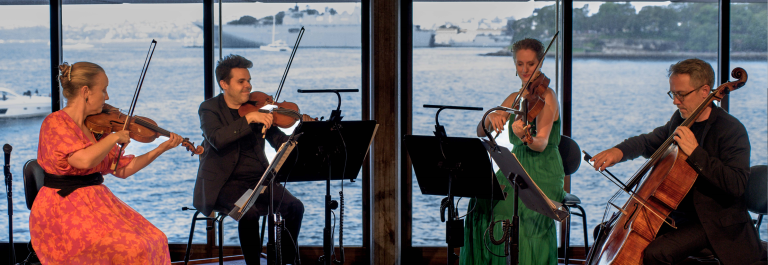CD Review: A Baroque Christmas/ Australian Chamber Choir/ Move Records
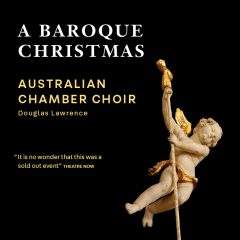
The Australian Chamber Choir has released a CD of baroque Christmas music compiled from their ample archive of recent live performances. A Baroque Christmas is a small but rewarding compensation for the lack of live performing opportunities during 2020. The recordings are taken from concerts in Victoria in November and December of 2018 and 2019 and from the Christuskirche in Hannover during the choir’s July 2019 tour to Europe.
The 17 tracks amount to just under an hour’s divine sound from this superb ensemble. A choral ensemble of 18 singers under the direction of founder Douglas Lawrence, AM, spans the music of composers from mid-fifteenth century Europe to the early 17th century. The selections embrace France, Italy, Germany and the Netherlands, sung with impeccable diction in German, Latin and English, with full text (and translations) and historical notes provided in the accompanying booklet.
The anthology opens with the music of the earliest of the early – the motet, Ave Maria by Josquin des Prez is an austerely simple, but brilliantly constructed work and his final mass the Missa Pangue Lingua. Two settings of the text from the Christmas Vespers O Magnum Mysterium follow, one by the Spanish Renaissance composer, Tomás Luis de Victoria and the other by Giovanni Gabrieli. Victoria’s motet is a notable one. The female voices create a hauntingly beautiful declamation in the opening bars, with all phrases building to the antithetical phrase O beata Virgo, sung with hushed serenity which then moves to the celebratory and multi-metric Alleluia.
It’s a neatly conceived bracket which closes off with two exuberant, gently swinging motets – Resonet in Laudibus by Johannes Eccard and Sweelinck’s Hodie, Christus Natus Est.
Melodies essential to evoking a European Christmas include Martin Luther’s Vom Himmel hoch, da komm ich herr with harmonisation in 1618 by the Bavarian composer Adam Gumpelzhaimer and three works to which Michael Praetorius lends his name. The ensemble gives an achingly beautiful rendition of Es ist ein Ros’ entsprungen, the onomatopoeic Singt und klingt and Ein Kind geborn zu Bethlehem, with alternate verses written by Bartholomäus Gesius.
Inevitably and essentially, there are four offerings by J S Bach – O Jesulein süß, sung with plaintive beauty by soprano Elspeth Bawden partnered by Elizabeth Anderson at the organ, the motet Lobet den Herrn alle Heiden and Bach’s parody on the anonymous 15th century carol, In dulci jubilo. Homage is paid to Bach’s organ writing with Elizabeth Anderson performing the first and last movements from the Pastorale in F Major BWV 590.
There are some lesser known gems as well, with Samuel Scheidt’s setting of In dulci jubilo, a clarion clear, dizzyingly high setting that reaches for the heavens in comparison with Pretorius’ more restrained arrangement; and Andreas Hammerschmidt’s Halleluja, freuet euch, the only item which the ensemble sings with organ accompaniment. The line-up closes with a nod to the contemporary, the legendary Sir David Willcocks’ setting of the traditional Basque carol, The Angel Gabriel.
The style of these carols and motets brims with imitation, antiphonal exchanges, varying combinations of voices and other compositional devices typical of the baroque. The Australian Chamber Choir has the skill to amply illustrate these, along with the complex architecture of the pieces, guided by Douglas Lawrence. Changes in metre and tempo are deftly navigated and the ensemble moves from contrasting polyphony to beautifully blended homophony with ease. Gabrieli’s piece, for example, written for two unequal choirs in imitative style is a double-edged sword. Where lesser ensembles might be exposed with fewer voices in each choir, the ACC excels, revealing the musicianship and consistent beauty of individual voices.
The ACC is substantially greater than the sum of its parts and in truth, no voice part is better or more important. Inevitably though, the ear is drawn to the melody, more often than not, allocated to the sopranos. The sopranos of the ACC are exceptional in their clarity of tone, elegance of phrasing and soaring legato lines. This is not to detract from the altos, tenors and basses, who demonstrated equal artistry and without whom, the sopranos could not have shone. All credit too, to the recording engineers Martin Wright (editing and mastering as well), Blake Stickland and Tanum Shipp who have done a splendid job
The Australian Chamber Choir is keeping the rich European choral tradition of style and repertoire alive. If you can’t make it to Europe this Christmas, the ACC’s A Baroque Christmas might be the next best thing.
Shamistha de Soysa for SoundsLIkeSydney©
A Baroque Christmas is due for release on 4 November 2020 on the Move Records label and is available at www.AusChoir.org/CDs

